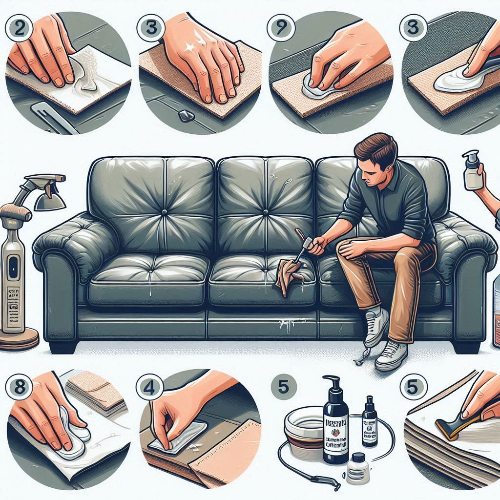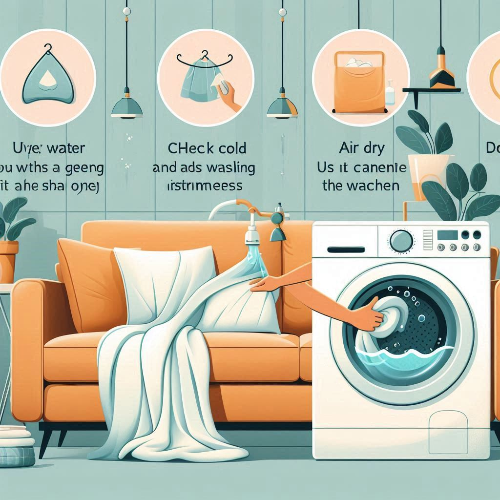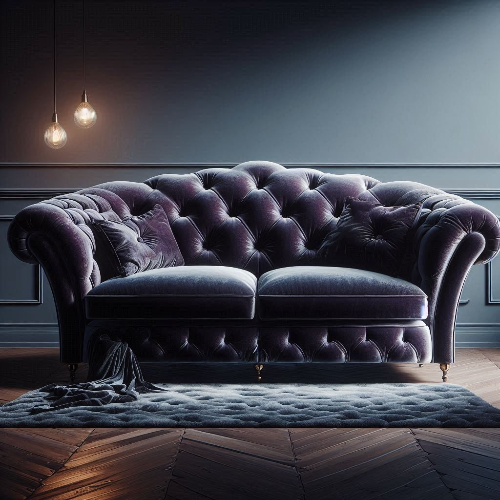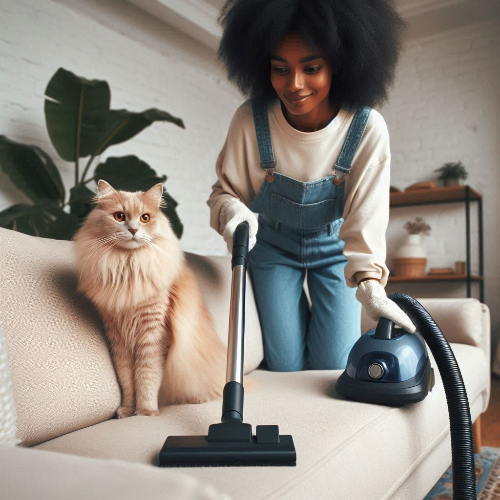Why Does My Dog Lick the Couch? Understanding Canine Behavior
Why does my dog lick the sofa?, you might have noticed your furry friend engaging in the curious habit of licking your couch or other furniture. This behavior can be puzzling and may prompt you to wonder why your dog licks the couch so frequently. Understanding the reasons behind this behavior is essential for maintaining a harmonious household and ensuring your dog’s well-being. In this article, we will explore the various reasons why dogs lick furniture, how to stop this behavior, and when it may indicate a deeper medical or behavioral issue.
What Are the Reasons Why Dogs Lick Furniture?
Common Reasons Dogs Lick Couches
Dogs lick furniture for a myriad of reasons, and identifying the most common ones can help you address the behavior effectively. One primary reason dogs lick couches is a natural instinct. Dogs may lick surfaces to explore their environment, as their sense of taste is closely linked to their sense of smell. Additionally, dogs may lick furniture out of boredom or a lack of mental stimulation. When dogs do not have sufficient outlets for their energy, they may resort to licking furniture to entertain themselves. This behavior can escalate into excessive licking if it goes unaddressed.
Exploring the Need to Lick the Furniture
Another reason dogs lick the furniture is related to comfort and anxiety relief. The act of licking can be soothing for some dogs, helping them cope with stress or anxiety. For instance, if your dog is licking the couch as a way to self-soothe, it might indicate underlying emotional distress. Additionally, some dogs may develop a habit of licking furniture as a form of attention-seeking behavior. If a dog receives a reaction from its owner when it licks the couch, whether positive or negative, it may continue the behavior to gain attention.
Behavioral Reasons for Excessive Licking
Excessive licking of furniture can also be a sign of behavioral issues, including compulsive behavior. Dogs that engage in constant licking may be suffering from obsessive-compulsive disorder (OCD), a condition that can manifest in various ways, including couch licking. In such cases, the licking behavior becomes a compulsive action, and the dog may feel compelled to lick the couch repeatedly, regardless of the context. Understanding these behavioral reasons is crucial for addressing excessive licking effectively.
How Can I Stop My Dog from Licking the Couch?
Effective Strategies to Stop Licking Behavior
To stop your dog from licking the couch, it is essential to implement effective strategies tailored to your dog’s needs. One of the first steps is to ensure that your dog has plenty of physical and mental stimulation throughout the day. Engaging your dog in regular exercise, interactive play, and dog sports can help reduce boredom and alleviate the urge to lick the furniture. Additionally, providing appropriate chew toys can redirect your dog’s need to lick things onto more suitable objects.
Training Techniques to Prevent Licking the Furniture
Training your dog is another effective way to prevent licking the furniture. Commands like “leave it” or “no lick” can be beneficial in discouraging this behavior. Consistent reinforcement of these commands will help your dog understand that licking the couch is not acceptable. Positive reinforcement methods, such as treats and praise when your dog avoids the couch, can strengthen this training. Additionally, creating a designated space for your dog, such as a cozy bed or play area, may help keep your dog away from the couch.
When to Consult a Veterinarian for Excessive Licking
If your dog is licking the couch excessively despite your best efforts, it may be time to consult a veterinarian. A vet can help determine whether there is an underlying medical issue contributing to the behavior. Conditions such as allergies, skin irritations, or gastrointestinal problems can lead to excessive licking. Identifying and treating any medical issues early can prevent further complications and help your dog find relief from its discomfort.
Can Licking Be a Sign of a Medical Issue?
Identifying Medical Conditions Related to Licking
It is essential to recognize that licking behavior can sometimes be a signal of a medical issue. For example, if your dog is licking the couch due to allergies, it may also be experiencing skin irritation, leading to excessive licking of furniture as a form of relief. In some cases, dogs may lick surfaces to alleviate nausea or discomfort. Observing any accompanying symptoms, such as vomiting, lethargy, or changes in appetite, can provide valuable information to your vet.
Behavioral Disorders: Compulsive Licking in Dogs
Compulsive licking can become a significant concern if it persists despite attempts to redirect the behavior. Dogs that develop compulsive behaviors often require a tailored approach to address their needs. Behavioral disorders can stem from various factors, including genetics, environment, and stress levels. A veterinarian or animal behaviorist can assist in developing a comprehensive plan to manage your dog’s compulsive licking and improve its overall quality of life.
How to Determine if Your Dog’s Licking is a Medical Concern
To determine if your dog’s licking is a medical concern, observe the frequency and context of the behavior. If your dog is constantly licking the couch or other furniture, and this behavior is accompanied by signs of distress or discomfort, it is crucial to seek professional help. Keep track of any changes in your dog’s behavior, eating habits, or energy levels, as these can provide essential clues for your veterinarian when diagnosing potential issues.
What Should I Do if My Dog Has Obsessive Compulsive Disorder?
Understanding Canine Obsessive Compulsive Disorder
Understanding canine obsessive-compulsive disorder (OCD) is vital for dog owners who notice their pets engaging in compulsive behaviors such as licking the couch. OCD in dogs may manifest through repetitive actions, including licking, chewing, or chasing shadows. While the exact cause of canine OCD is not fully understood, it is believed to arise from a combination of genetic predisposition and environmental factors. Addressing OCD requires a comprehensive approach, including behavioral modification and, in some cases, medication.
Signs of Compulsive Behavior in Dogs
Signs of compulsive behavior in dogs can vary widely but often include excessive licking, pacing, and repetitive movements. If you notice your dog licking the couch to the point of creating wet spots or bald patches on their skin, this may indicate a more serious issue. Additionally, if your dog seems unable to control its licking behavior, or if it appears distressed while doing so, it is essential to seek help from a veterinarian or animal behaviorist.
How to Help Your Dog with OCD
Helping your dog with OCD involves creating a structured environment that minimizes stress and provides mental enrichment. Engaging your dog in various activities, such as obedience training, puzzle toys, and socialization with other dogs, can help divert its focus away from compulsive licking. In some cases, your veterinarian may recommend medications to help manage the condition. A combination of behavioral therapy and medication can often lead to significant improvements in your dog’s overall well-being.
Does Separation Anxiety Cause Dogs to Lick the Sofa?
Recognizing Signs of Separation Anxiety in Dogs
Separation anxiety is a prevalent issue among dogs, and it can manifest in various ways, including couch licking. Dogs that experience separation anxiety may become distressed when left alone and may resort to destructive behaviors to cope. Signs of separation anxiety include excessive barking, whining, pacing, and, of course, licking furniture. If your dog is licking the couch when you leave the room, it could be a sign of anxiety related to separation from you.
Ways to Alleviate Anxiety-Related Licking
To alleviate anxiety-related licking, it is essential to create a safe and comforting environment for your dog. Gradually desensitizing your dog to your departures can help reduce anxiety. Start by leaving your dog alone for short periods and gradually increasing the duration. Providing engaging toys and interactive games can also help keep your dog occupied and distracted during your absence. Additionally, consider implementing calming aids, such as pheromone diffusers or anxiety wraps, to support your dog during stressful times.
When to Seek Professional Help for Separation Anxiety
If your dog’s separation anxiety leads to destructive behaviors, including excessive licking of the couch, it may be time to seek professional help. A veterinarian or certified dog trainer can assess your dog’s behavior and recommend specific training techniques and interventions. In some cases, behavioral therapy or medication may be necessary to help your dog cope with anxiety effectively. Remember, addressing separation anxiety early can lead to a happier and healthier dog.
Frequently Asked Questions
Q: What are the main reasons dogs lick furniture, like the couch?
A: There are several reasons dogs lick furniture, including boredom, anxiety, or simply because they like the taste or texture of the fabric. Dogs may also lick couches as a way to comfort themselves or to pass the time.
Q: Why does my dog keep licking the couch?
A: If your dog keeps licking the couch, it could be due to stress, boredom, or a habit that has developed over time. Understanding the reasons for this behavior can help you address it effectively.
Q: How can I get my dog to stop licking the couch?
A: To stop licking the couch, you can redirect your dog’s attention to toys or engage them in training sessions. Providing more physical and mental stimulation can also help reduce their urge to lick furniture.
Q: Is it normal for dogs to lick furniture and other objects?
A: Yes, it is normal for dogs to lick furniture and other objects. This behavior can stem from various reasons, including comfort, curiosity, or simply because dogs enjoy licking different surfaces.
Q: Can licking the couch indicate a health issue in dogs?
A: While many dogs lick furniture due to behavioral reasons, excessive licking may sometimes indicate an underlying health issue, such as allergies or gastrointestinal problems. If you’re concerned, it’s best to consult your veterinarian.
Q: Why do some dogs lick cushions more than others?
A: Some dogs may lick cushions more than others due to individual preferences or specific triggers, such as the scent or texture of the fabric. Each dog’s behavior can vary based on their personality and experiences.
Q: Do dogs lick furniture out of boredom?
A: Yes, boredom is one of the reasons dogs lick furniture. If they lack sufficient exercise or mental stimulation, dogs may start licking the couch as a way to occupy themselves.
Q: How can I provide my dog with alternatives to licking the couch?
A: To give your dog alternatives to licking the couch, provide engaging toys, interactive puzzles, and regular exercise. Additionally, incorporating training sessions can help keep their mind active and reduce licking behaviors.
Q: Are there specific scents that attract dogs to lick furniture?
A: Yes, dogs may be attracted to certain scents on furniture, such as food residue or the smell of their owners. This attraction can lead them to start licking the couch or other items in the home.
Q: How can I tell if my dog’s licking behavior is a problem?
A: If your dog’s licking behavior is excessive, causing damage to furniture or leading to skin irritations, it may be a problem. Observing the frequency and context of the licking can help determine if intervention is needed.









